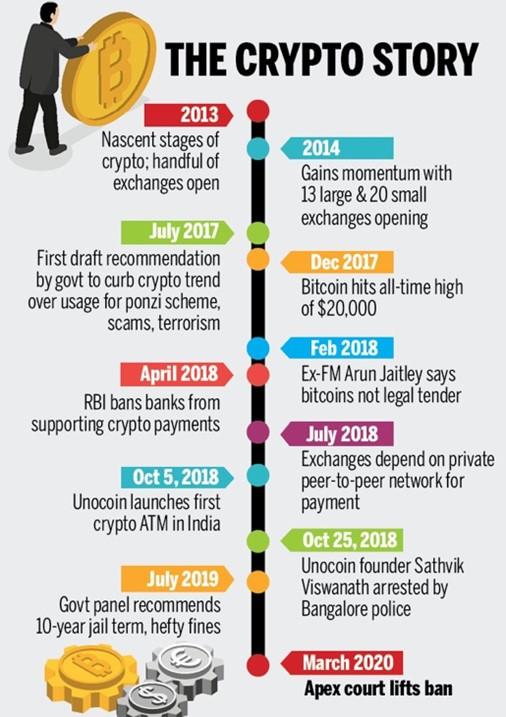Wednesday, 17th February 2021
Topic 12 - Changing Nature of Work: Gig and Platform Workers
The Economic Survey 2020-21 (Vol II, Ch. 10) refers to the changing nature of India’s job market and growing popularity of gig and platform works.
What is changing in nature of job?
· The nature of work has been changing with the change in technology, evolution of new economic activities, innovation in organization structures and evolving business models.
· Digital platforms have emerged as enablers for employment creation with the power to easily discover job seekers and job providers in the absence of middlemen.
· Digital technology enables two-sided markets which saw the emergence of e-commerce and online retailing platforms such as Amazon, Flipkart, Ola, Uber, Urban Clap, Zomato, Swiggy etc.
o Two-sided market is one in which (i) two sets of agents interact through an intermediary or platform, and (ii) the decisions of each set of agents affects the outcomes of the other set of agents, typically through an externality.
· India has emerged as one of the largest countries for flexi-staffing in the world. COVID-19 gave a further boost to gig economy.
Gig Workers and Platform Workers
• The Code on Social Security, 2020 defines them.
o Gig workers refer to workers outside the traditional employer-employee relationship.
o Platform workers are those who access organisations or individuals through an online platform and provide services or solve specific problems.
• Characteristics of Gig and Platform Work
o Their labour contract is usually shorter and more specific to the task or job assigned.
o The control over their work by employer varies in degree but in any case, is not full. The workers most of the time are flexible to decide on when to work, where to work etc.

Legal Position on Gig and Platform Work
· Till recently, gig or platform workers were neither considered as worker nor employee under definition of employee in the labour laws and were not entitled to legal protections under labour laws.
· For the first time,Code on Social Security 2020 brought them under legal ambit by defining them exclusively in the category of unorganized worker for providing social security benefits. It provides for following provisions-
o Social security fund: The central and state governments will set up and administerseparate social security funds for unorganised workers, gig workers and platform workers.
o Provisions for registration with documents including their Aadhaar number of all three categories of workers - unorganised workers, gig workers and platform workers.
o National Social Security Board: for the purposes of welfare of these workers and recommend and monitor schemes for them.
o Social Security Benefits and Contribution for Schemes: The Code confers power upon the Central Government to frame welfare schemes for the workers in the unorganized sector. Schemes for gig workers and platform workers may be funded through a combination of contributions from the central government, state governments, and aggregators.
Budget 2021-22 Announcements for Gig & Platform workers
· Proposal to set up a portal for collecting data of gig and platform workers and other informal sector employees which may help in offering social security and welfare benefits to them.
· The law on minimum wages would now apply to workers of all categories including gig and platform workers. Such workers would now be covered by the Employees State Insurance Corporation (ESIC).
· Allow women to work in all these categories as well as in night shifts, backed by suitable safeguards.
Taken together, such measures will streamline the gig economy, transforming it into a more organised sector. Consequently, this should help attract more talent in the coming days.
Remaining Challenges
· Overlapping definitions: Although unorganised workers, gig workers and platform workers have been separately defined under the new code, unorganised workers are the whole set, and gig and platform workers are subsets. With such overlap across definitions, it is unclear how schemes specific to these categories of workers will apply.
· Issue of Inclusivity: Making Aadhaar compulsory for registration is legally not tenable, since the Supreme Court has not made Aadhaar mandatory in a number of instances. Moreover, denying social security to a deserving worker for unavailability of Aadhaar goes against inclusive welfare.
· Duality of Government: Complexities arise when both the central and state governments are supposed to be providing different sets of social security measures.
Model Question - India is witnessing a changing nature of work with emergence of gig and platform works. In this regard, examine the recent steps taken by the government to streamline the gig economy, transforming it into a more organised sector.
Share the article
Get Latest Updates on Offers, Event dates, and free Mentorship sessions.

Get in touch with our Expert Academic Counsellors 👋
FAQs
UPSC Daily Current Affairs focuses on learning current events on a daily basis. An aspirant needs to study regular and updated information about current events, news, and relevant topics that are important for UPSC aspirants. It covers national and international affairs, government policies, socio-economic issues, science and technology advancements, and more.
UPSC Daily Current Affairs provides aspirants with a concise and comprehensive overview of the latest happenings and developments across various fields. It helps aspirants stay updated with current affairs and provides them with valuable insights and analysis, which are essential for answering questions in the UPSC examinations. It enhances their knowledge, analytical skills, and ability to connect current affairs with the UPSC syllabus.
UPSC Daily Current Affairs covers a wide range of topics, including politics, economics, science and technology, environment, social issues, governance, international relations, and more. It offers news summaries, in-depth analyses, editorials, opinion pieces, and relevant study materials. It also provides practice questions and quizzes to help aspirants test their understanding of current affairs.
Edukemy's UPSC Daily Current Affairs can be accessed through:
- UPSC Daily Current Affairs can be accessed through Current Affairs tab at the top of the Main Page of Edukemy.
- Edukemy Mobile app: The Daily Current Affairs can also be access through Edukemy Mobile App.
- Social media: Follow Edukemy’s official social media accounts or pages that provide UPSC Daily Current Affairs updates, including Facebook, Twitter, or Telegram channels.





